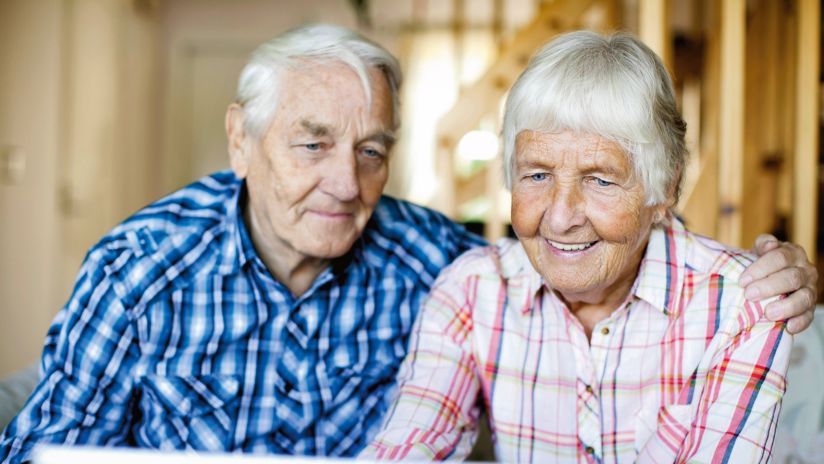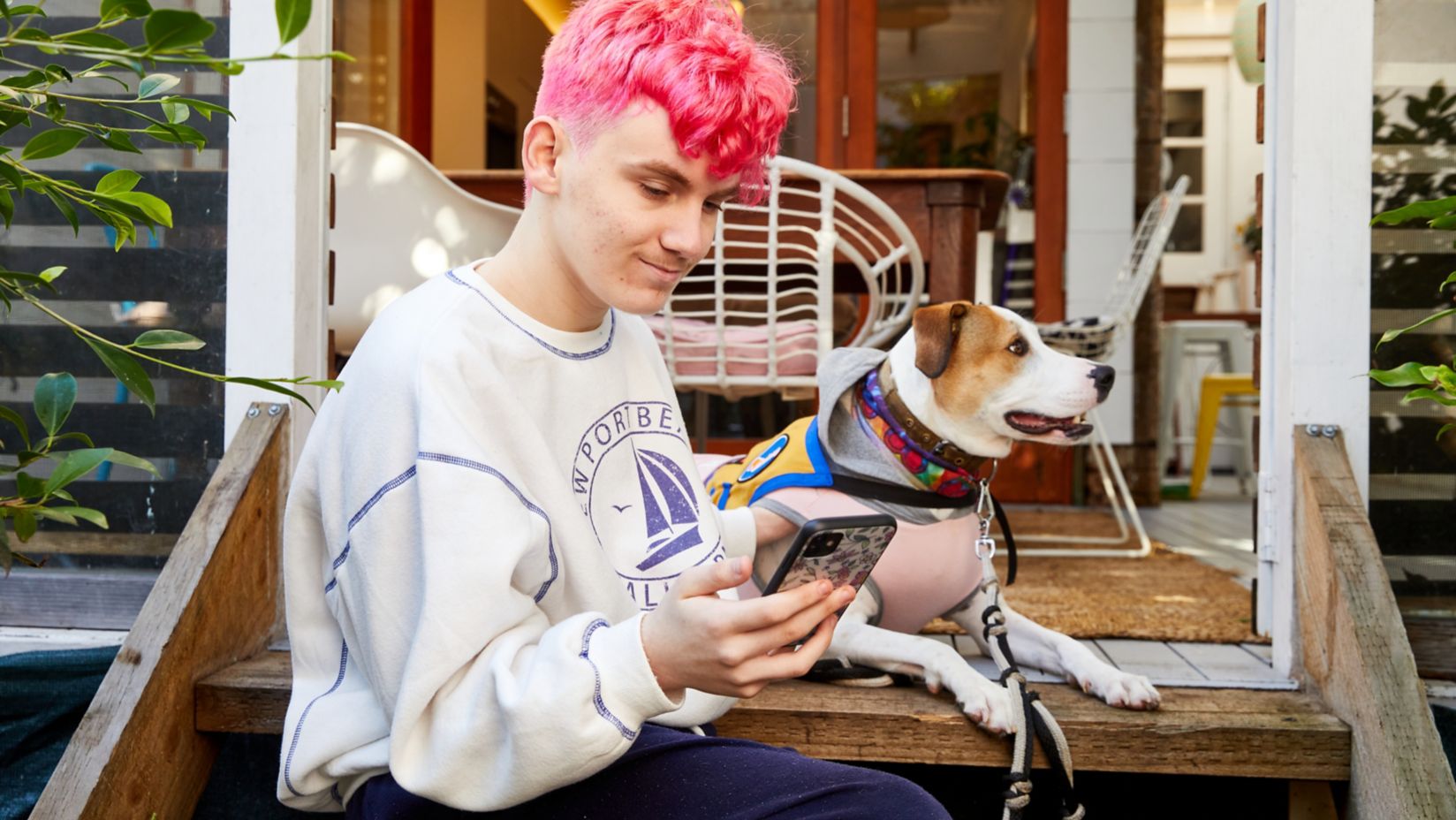Delivering a sense of security for vulnerable Australians during natural disasters
Discover how Get ePrepared empowers Australians to safeguard vital documents digitally, building resilience against climate disasters and legal challenges.

Get ePrepared helps bring digital resilience to 55,000 vulnerable people
Karin Ness knows what it’s like to lose everything in a climate-related disaster. For nearly three years, the community legal education officer at the Northern Rivers Community Legal Centre has been supporting hundreds of people who lost homes or property during the 2022 floods, which displaced 30,000 people and became the most expensive disaster in Australian history.
For Karin, those devastating floods – and the shameless incidents of fraud and theft that followed underscored the need for vulnerable people in disaster-prone areas to secure their identity and property records. “There’ve been a number of grants for people to rebuild or relocate their homes, but with all the paperwork involved, it’s been a real nightmare for some residents – particularly with people outside the area trying to cash in on their misfortune as well,” she says.
A free online service that stores essential digital information
Karin is one of dozens of community workers who have supported a digital inclusion project launched by Justice Connect and Telstra, which aims to build the resilience of 55,000 Australians who are vulnerable to climate disasters and legal crises.
The first product of the partnership is a tool that’s particularly useful for people facing fires or floods: a free online service geared to help Australians identify, capture, and store digital copies of the essential documents required to prove who they are, where they live, and what they own.
Focusing on preparedness
Telstra is committed to keeping customers connected when they’re doing it tough. This includes disaster response by restoring the network to keep customers and impacted communities connected, as well as providing financial assistance to affected areas. This tool focuses on the preparedness stage.
Both Justice Connect and Telstra have a long history of helping people affected by disasters. We joined forces because we wanted to use technology to help more people prepare for and recover from some of the most difficult moments in life.
- Justine Rowe, Chief Sustainability Officer at Telstra
A simple and practical solution for people with limited digital skills
Get ePrepared was designed as a simple and practical guide to help people with limited digital skills – senior Australians, people with a disability, those who speak a different language – to secure their online identity.
“As we face more frequent and severe disasters, there’s evidence that people who are digitally excluded are more vulnerable to compounding legal problems that can lead to their lives unravelling,” says Emily Malone, Head of Engagement at Justice Connect.
The platform was developed in a phenomenally fast co-design process over three months last summer, when Justice Connect field-tested its initial design with 15,000 people through its network of community legal centres, law firms, neighbourhood houses, and other not-for-profit organisations. The renowned charity, which provides free legal services to people in need, regards Get ePrepared as a critical step to counter what it sees as a growing epidemic of legal challenges in disaster-prone communities.
What ePrepared offers
The main goal of Get ePrepared is to help individuals identify what documents are most important for them, the most appropriate channels for storing them, and how to go about it. The site provides:
- Comprehensive checklists to help you evaluate which documents are most relevant and important to you and your family – including your identity, property, health, and finances.
- Analyses of the pros and cons of different digital storage options, from your device, to USBs, email programs, or cloud storage solutions.
- Step-by-step spoken and written instructions to create electronic copies for each of these storage solutions.
Compounding traumas
The Federal Government records dozens of disasters each year, and as it takes most people years to rebuild after losing their homes, the level of trauma is impossible to quantify. Research by the Victoria Law Foundation suggests that people affected by disasters are twice as likely to have five or more simultaneous legal problems – and their problems last longer. The Foundation’s research shows those living in remote areas, those with a long-term illness or disability, and those reporting mental distress all face longer, more intractable problems – and these groups often overlap with the one in four Australians with little or no digital literacy.
Stories from Justice Connect’s partners and pro bono lawyers are as devastating as the weather that created them. People who’ve lost everything being evicted by their landlords; sick and elderly people living in their cars; people who’ve lived through several bushfires who can no longer find peace between four walls.
“We’ve met people living in tents in a caravan park, who lost all their belongings in a fire six years ago, and now can’t bear to live in a house and risk losing everything again,” says Lisa Morgan, who leads the digital inclusion project at Justice Connect. “They’re essentially trying to outrun disasters.”
Clearing the gutters of leaves and filling them with water can only be done a few days before a fire. But Get ePrepared allows users to prepare any time. It gives them some sense of doing something constructive, something to give them back a little control.
– Lisa Morgan, Justice Connect
A new sense of security
In its first 11 months, Get ePrepared has empowered more than 10,000 Australians to learn new skills about document storage, and attracted 97,000 views – at least half of which have come from users aged over 65. According to Lisa Morgan, in some communities, there are already signs the tool is creating a new sense of confidence in using digital technologies.
Preparing for future events
For Karin Ness, who conducted vital testing of Get ePrepared with flood victims from different linguistic backgrounds, the tool has had some unexpected benefits. “The first couple of years after the floods have been full on, so it’s been difficult to get people thinking about preparedness [for future disasters] because they’ve been so exhausted,” says Karin. “But this tool has been a good way to get people talking about the things we can do to prepare for future events.
We’re going to keep pointing people towards Get ePrepared, which is not just relevant for disaster recovery, but for anyone who has any legal issues. These days, not many of us have paper bills anymore – so a tool like this becomes more important for everyone.


